Small dogs that weigh less than 25 pounds (or about 11.5kg) make great companions and are often better suited to things like apartment living and travelling. Not to mention, they generally don't cost as much to feed and look after compared with larger breeds.
They're not immune to shedding though.
All dogs, regardless of their size, drop hair. It's just that smaller breeds generally have less hair to lose given the smaller surface area on their body. So, in other words, you still need to choose the right breed of small dog if you want to avoid cleaning up loose fur all the time.
And that's exactly what this post is about. We've brought together 25 of the lowest shedding breeds that weigh less than 25 pounds, and share further insight into things like grooming, how active they are and how prone they are to barking, to give you some ideas on which breed might be best for you. So with that being said, let's see which dogs made the list!
1. Basenji (22-24 pounds)
Basenjis might be small in appearance, and they don't bark much, but don't let that fool you. They were originally bred as hunters in Africa, and they're one of the most intelligent, courageous dogs out there. Not to mention, surprisingly powerful for their size [...more].
Shedding:
Grooming:
Exercise:
Barking:

2. Bichon Frise (12-18 pounds)
The Bichon Frise belongs to a group of bichon type dogs that includes breeds like the Havanese, Bolognese and Maltese. But make no mistake, his winning personality, charm and beautifully white, puffy coat make him a one of a kind dog [...more].
Shedding:
Grooming:
Exercise:
Barking:
Great Apartment Dog

3. Bolognese (5-9 pounds)
Bolognese (AKA Bichon Bolognese or Bolos) are a small breed of dog with a white, fluffy coat. These adorable little fur babies love people about as much as they love playing, so will happily follow you around the home and snuggle on your lap when you want to relax [...more].
Shedding:
Grooming:
Exercise:
Barking:

4. Border Terrier (11-15 pounds)
Border Terriers are small working dogs that were bred to hunt fox and control vermin on the farm. So it’s no wonder they are often described as being tough and courageous. But they’re also affectionate dogs that make excellent family companions [...more].
Shedding:
Grooming:
Exercise:
Barking:

5. Boston Terrier (12-25 pounds)
Boston Terriers are a small breed of dog that originated from Boston, Massachusetts in the U.S. They're often described as a friendly, lively, and smart companions that makes you smile and have a short, smooth coat that sheds very little year-round [...more].
Shedding:
Grooming:
Exercise:
Barking:

6. Brussels Griffon (8-10 pounds)
Brussels Griffons are small, yet sturdy, dogs that originate from Belgium, where they used their hunting skills to dispatch mice and rats in stables. These days, they are better known as curious, affectionate and alert companions with an adorable face and human-like eyes.
Shedding:
Grooming:
Exercise:
Barking:
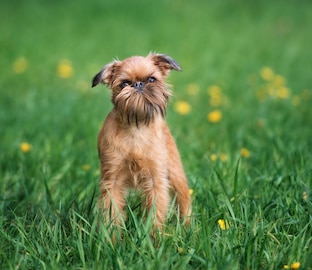
7. Cairn Terrier (13-14 pounds)
Cairn Terriers are small dogs that were developed in Scotland to dig into cairns (man-made piles of rocks for graves or landmarks) and dispatch the rodents living within them. So on top of being cute and cuddly companions, they’re also rugged, fearless little hunters [...more].
Shedding:
Grooming:
Exercise:
Barking:

8. Cavalier King Charles Spaniel (13-18 pounds)
The Cavalier King Charles Spaniel is a Toy breed that originated in the UK in the 1600s and have since become one of the most popular family dogs in the United States. They are intelligent, cheerful, fun loving dogs and are characterized by an adorable face [...more].
Shedding:
Grooming:
Exercise:
Barking:
Great Apartment Dog
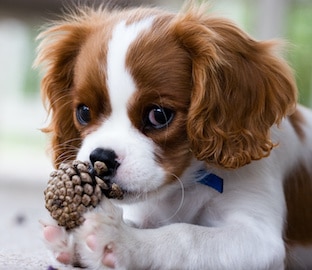
9. Chihuahua (up to 6 pounds)
Chihuahuas were named after the Mexican state of Chihuahua and are often described as loyal, charming and bold like a terrier. It does depend on which variety you adopt (short or long coat, single or double coat) but they are generally a fairly low shedding breed [...more].
Shedding:
Grooming:
Exercise:
Barking:

10. Havanese (7-13 pounds)
The Havanese breed of dog originates from Cuba, where once upon a time they made pampered lapdogs for Cuban royalty. They’ve since become popular family companions all over the world, particularly in the United States, and are simply adorable [...more].
Shedding:
Grooming:
Exercise:
Barking:

11. Italian Greyhound (7-14 pounds)
Italian Greyhounds (Iggys) are in many ways a miniature version of the Greyhound in appearance. However, where Greyhounds are large dogs known for their racing ability, Iggys are much smaller and are better characterized as graceful, playful companions [...more].
Shedding:
Grooming:
Exercise:
Barking:

12. Japanese Chin (7-11 pounds)
Japanese Chins (AKA Japanese Spaniels) are small toy dogs that once served as companions for Japanese nobility. They are now loved the world over, and are known for being cat-like given their fastidious, intelligent and independent nature [...more].
Shedding:
Grooming:
Exercise:
Barking:

13. Maltese Dog (under 7 pounds)
Maltese are beautiful little dogs that originated from Malta thousands of years ago, and they've been adored for centuries. It’s not hard to see why either. They are known as alert, playful, gentle companions and have a beautifully white, low shedding coat [...more].
Shedding:
Grooming:
Exercise:
Barking:

14. Miniature Pinscher (8-10 pounds)
Min Pins are small dogs with big dog personalities. They are known as a fearless, energetic and proud breed that make excellent family companions. And because they shed very little hair and their coat is super easy to maintain, they're make great no-fuss companions [...more].
Shedding:
Grooming:
Exercise:
Barking:

15. Miniature Schnauzer (11-20 pounds)
The Miniature Schnauzer was bred in the 19th century by German farmers for hunting rats, guarding and herding. They are basically a small version of the Standard Schnauzer and are known as spirited, obedient, willing to please and friendly companions [...more].
Shedding:
Grooming:
Exercise:
Barking:
Great Apartment Dog

16. Norfolk Terrier (11-12 pounds)
Norfolk Terriers are small working dogs that originate from Norwich, where they were originally bred to hunt vermin and catch foxes. They might be small, but they’re just as fearless, fun loving and independent as large terriers and love people and other pets [...more].
Shedding:
Grooming:
Exercise:
Barking:

17. Norwich Terrier (up to 12 pounds)
Norwich Terriers are small dogs that were originally bred to hunt rats, which is something they share in common with breeds like the West Highland White Terrier. As time went on, however, these energetic, affectionate dogs became prized companions the world over [...more].
Shedding:
Grooming:
Exercise:
Barking:

18. Papillon (5-10 pounds)
Papillons are small, beautiful looking dogs that were bred as companions for noblewomen hundreds of years ago. Today, the friendly and upbeat Pap is a popular family companion. And don’t let their cuteness fool you, they’re actually very athletic, robust little dogs [...more].
Shedding:
Grooming:
Exercise:
Barking:

19. Scottish Terrier (18-22 pounds)
Scottish Terriers were bred in Scotland to hunt foxes and rats. They’re best known as confident, spirited and loyal dogs that make great family companions. And even though their coat does require more attention than a shorter haired breed, they aren't heavy shedders [...more].
Shedding:
Grooming:
Exercise:
Barking:

20. Shih Tzu (9-16 pounds)
Shih Tzus are a Chinese toy dog breed whose name means “lion dog.” They are best known for being friendly in nature and interact well with other dogs and children. And while they do need exercise, they don’t mind spending hours sitting on your lap so they're great lapdogs [...more].
Shedding:
Grooming:
Exercise:
Barking:

21. Silky Terrier (up to 10 pounds)
Silky Terriers are small dogs weighing up to 10 pounds (or 5kg) that originate from Australia. They excel at hunting small, fast moving rodents and make friendly, alert and spirited companions. They are prone to barking, but are great low shedding companions [...more].
Shedding:
Grooming:
Exercise:
Barking:
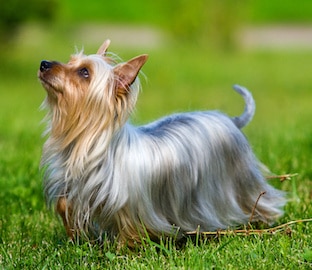
22. Toy Poodle (4-6 pounds)
Poodles are highly intelligent, athletic dogs that were once used for hunting and retrieving ducks in Germany. Today, they are one of the most popular breeds in the U.S. and the Toy poodle is essentially just a smaller, yet equally adorable, variety of Poodle [...more].
Shedding:
Grooming:
Exercise:
Barking:
Great Apartment Dog
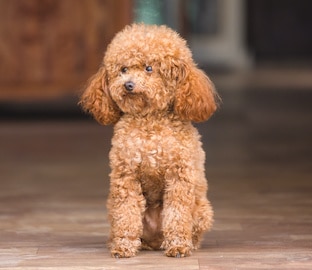
23. West Highland White Terrier (15-20 pounds)
West Highland White Terriers (or Westies) are small white coated Earthdogs that were used hundreds of years ago to hunt rats and other rodents in Scotland. Today, they’re more commonly known as loveable family pets and stars in the show ring [...more].
Shedding:
Grooming:
Exercise:
Barking:
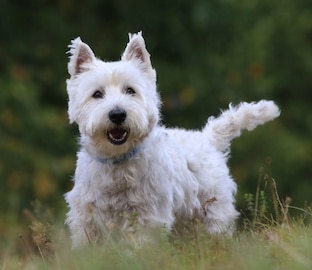
24. Wire Fox Terrier (15-18 pounds)
Fox Terriers originate from England where they were purpose bred "fox hunters." Their bold nature, keen senses and speed helped hunters pinpoint foxes and drive them out of their den. The Wire Fox Terrier has a tough, wiry top coat and is the lowest shedding variety. However, it's worth pointing out that the Toy Fox Terrier is the smallest, lightest Foxy [...more].
Shedding:
Grooming:
Exercise:
Barking:
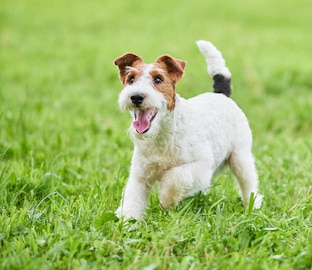
25. Yorkshire Terrier (up to 7 pounds)
Yorkshire Terriers are small, affectionate dogs that are just full of personality. They were originally developed in England as skilled ratters, but went on to become one of the most popular urban companions in the world. And thankfully, they don’t shed much hair [...more].
Shedding:
Grooming:
Exercise:
Barking:
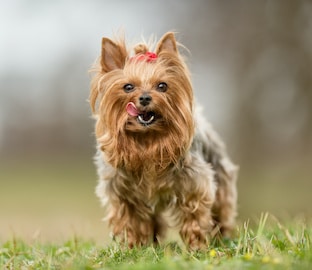
Bottom Line
Small dogs make great companions, and by adopting one that doesn't shed much, you can spend more time enjoying your dog's company, and less time cleaning up old fur.
Keep in mind, however, that no two dogs are exactly alike. And there are a range of factors that determine things like how much a dog sheds, what they're like to groom, how much exercise they need and how likely they are to bark excessively.
For example, factors such as the season, your dog's diet and his overall health can significantly impact how much hair he drops. In a similar vein, how much a dog barks can vary greatly depending on the individual dog, the caretaker and how well trained the dog is.
Therefor, consider what we've shared here about the various breeds as a general guide, rather than absolute fact, because each and every dog is unique. If you want more clarity on whether or not a particular dog is going to be right for you, speak to the breeder or your local vet.
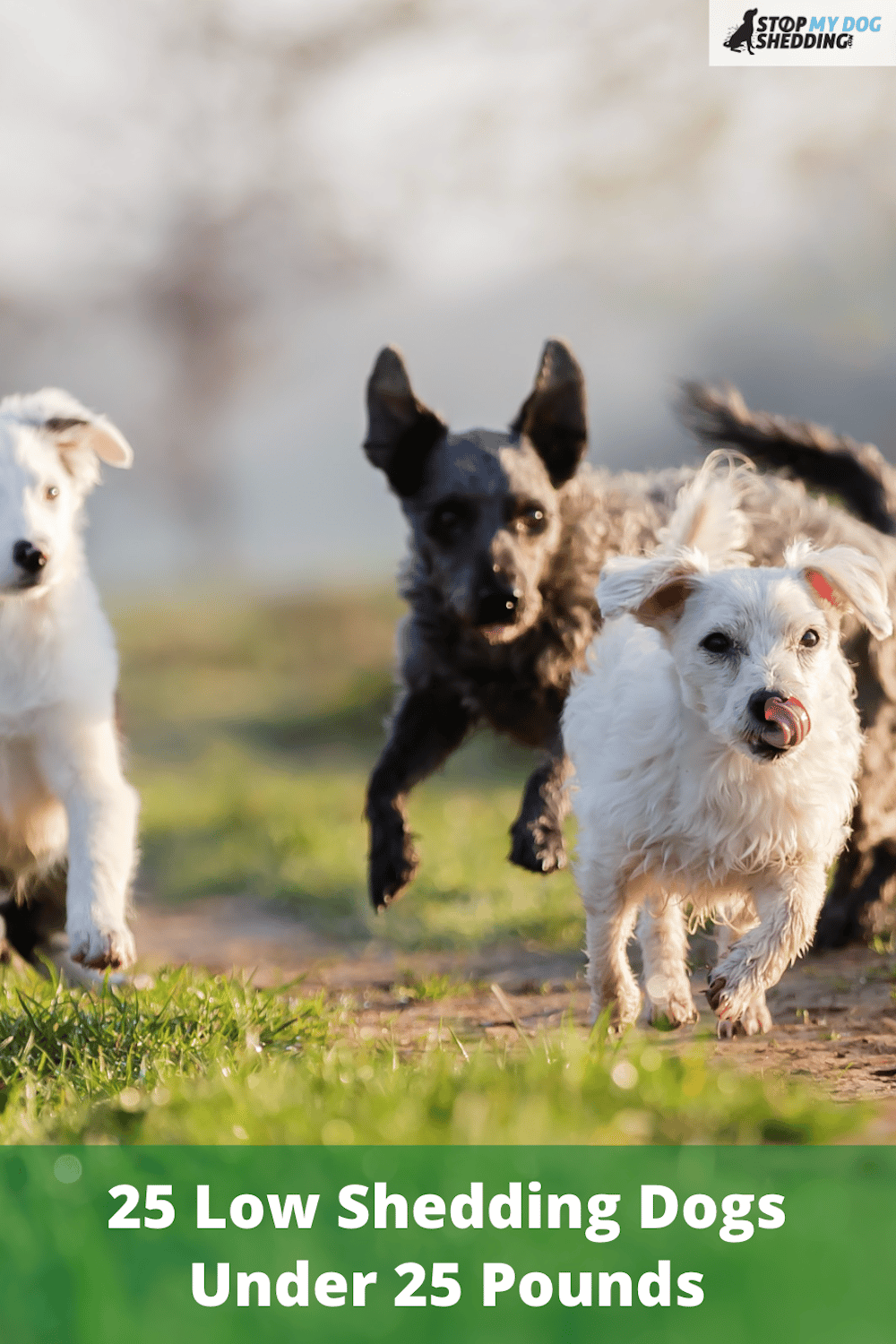

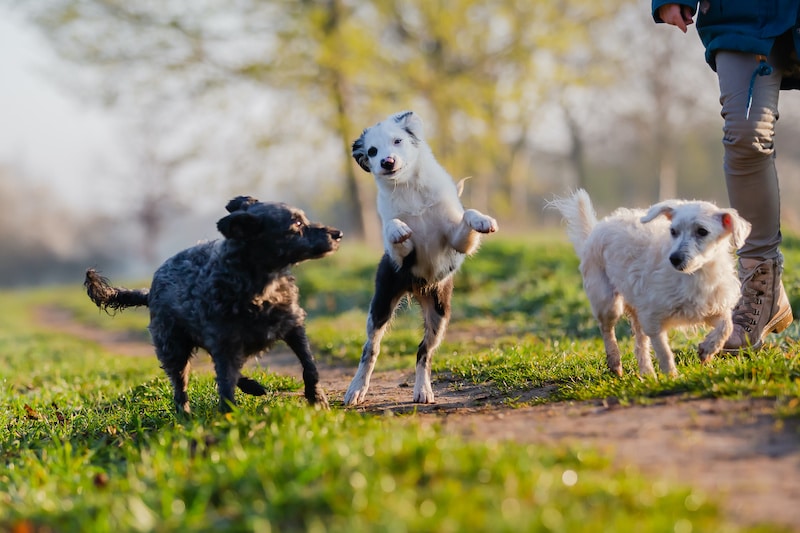
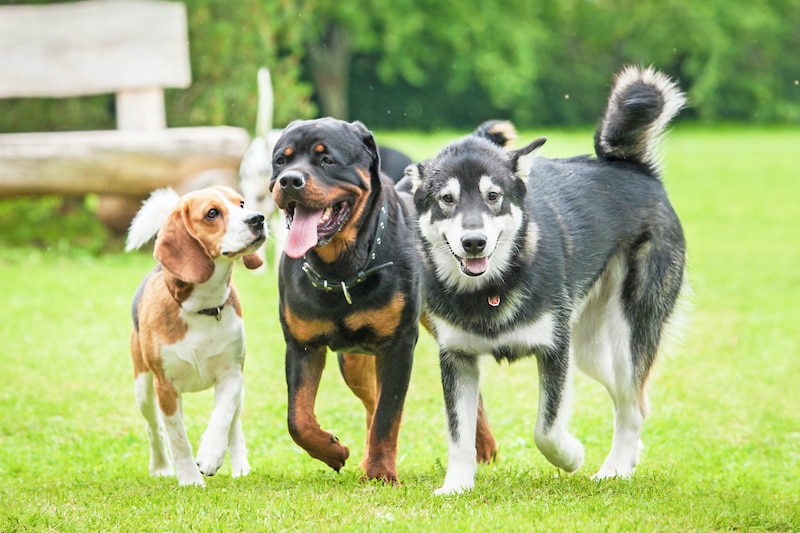
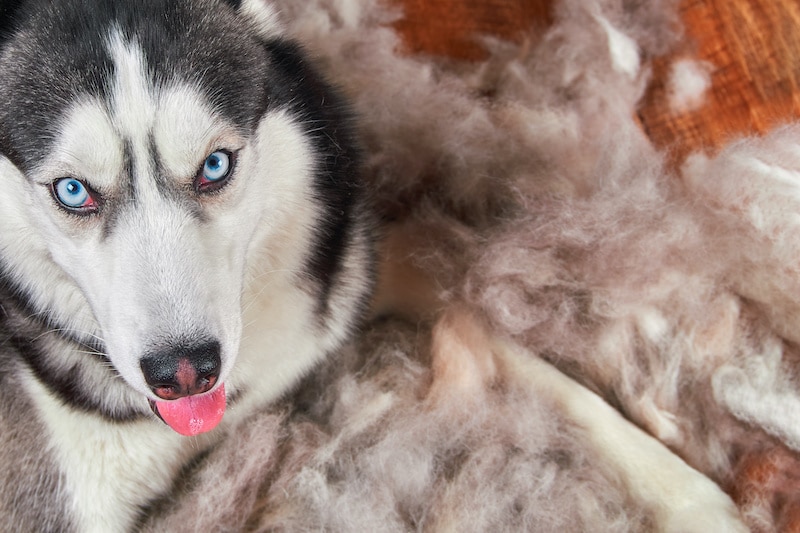
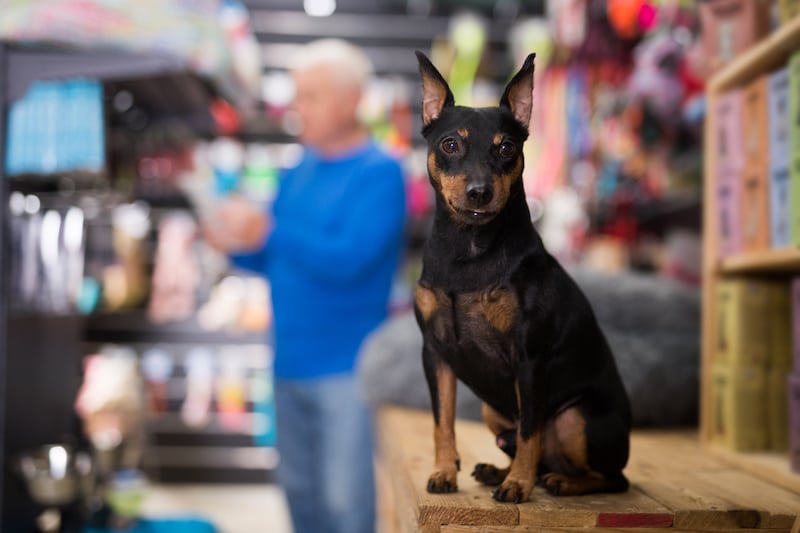







Please note: By submitting a comment using the above comment form, you confirm that you agree with the storage and handling of your data by this site as detailed in our Privacy Policy.